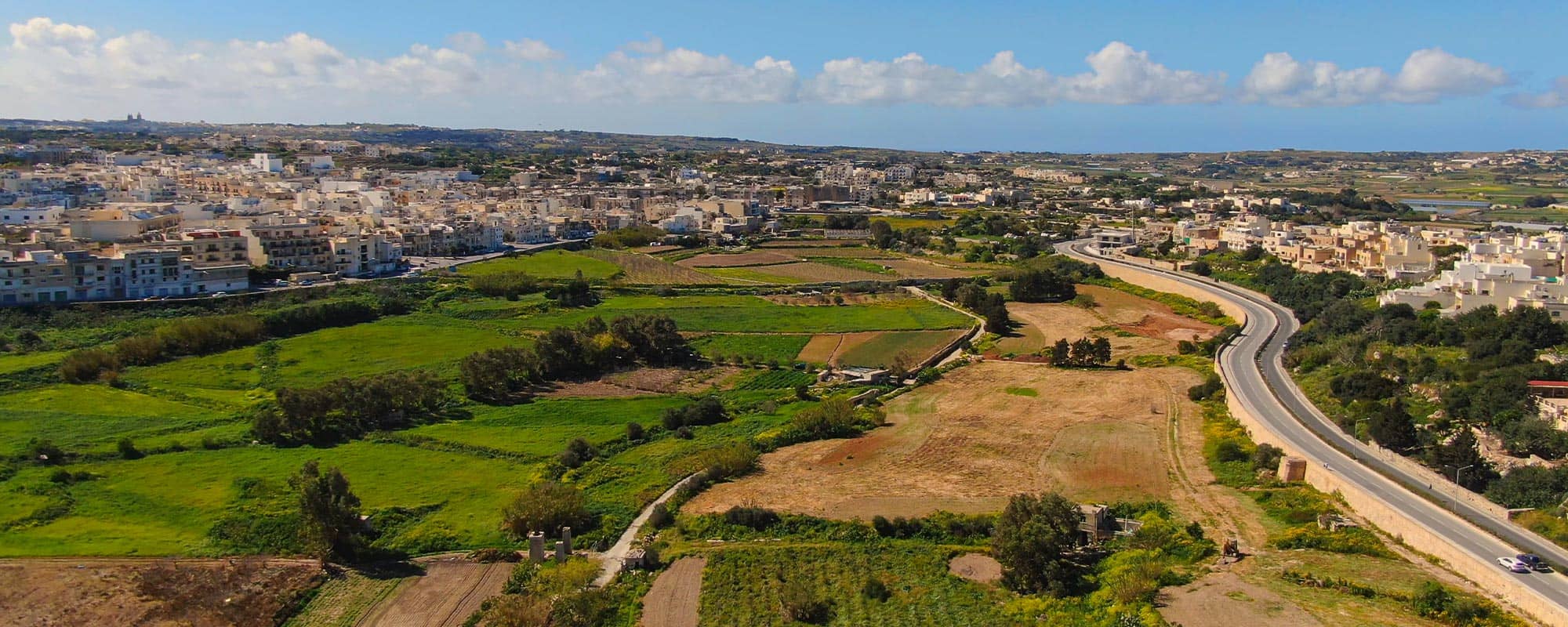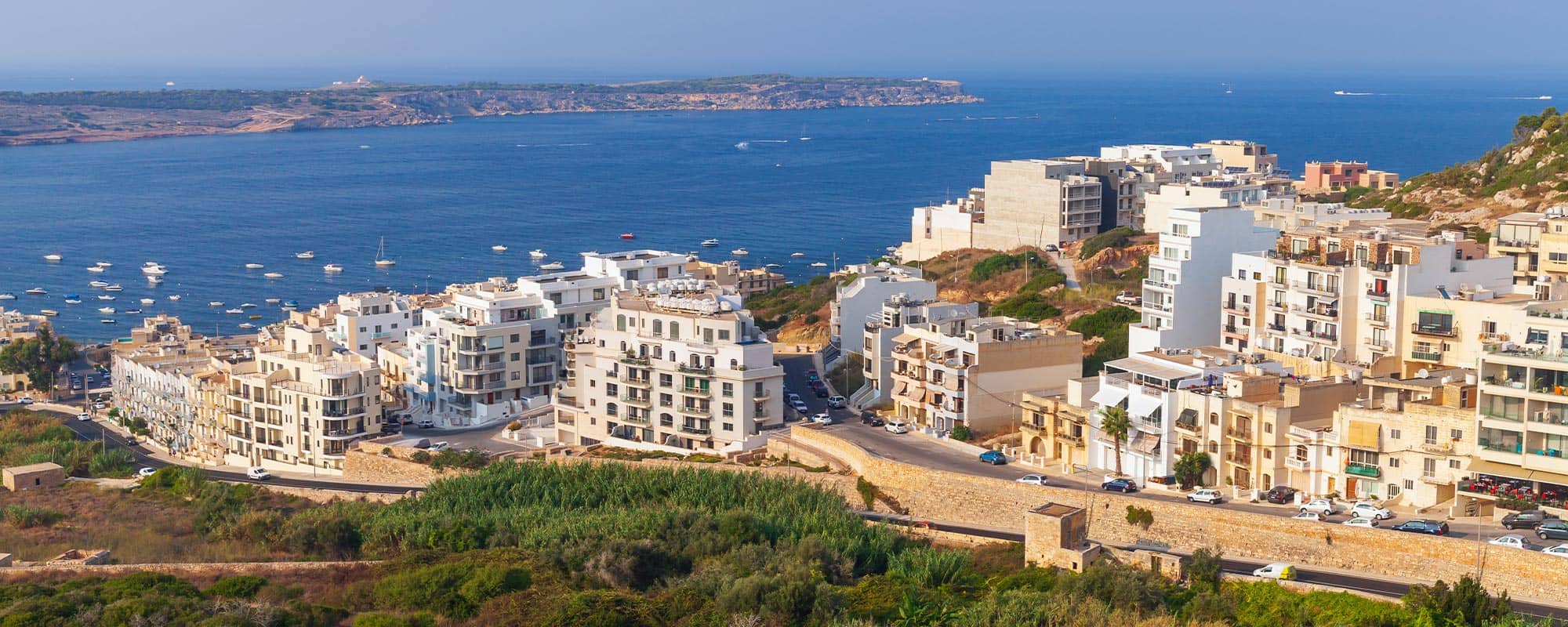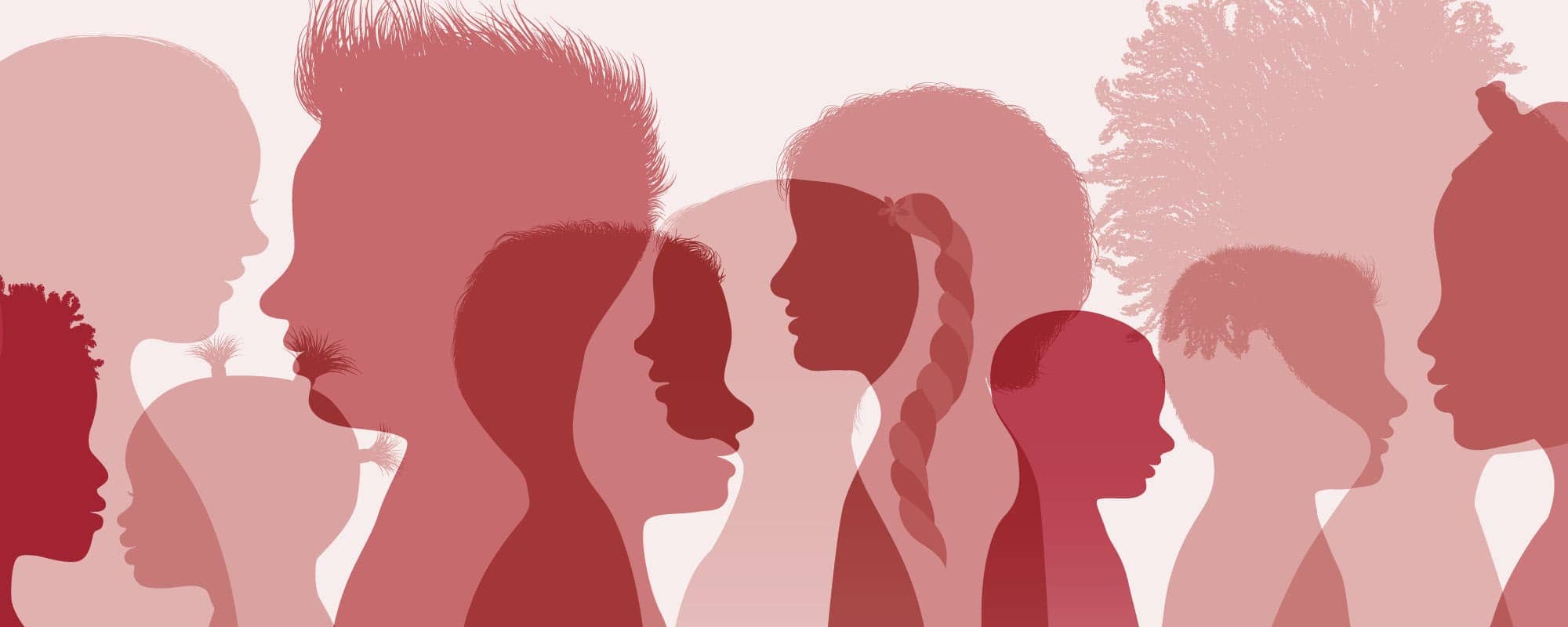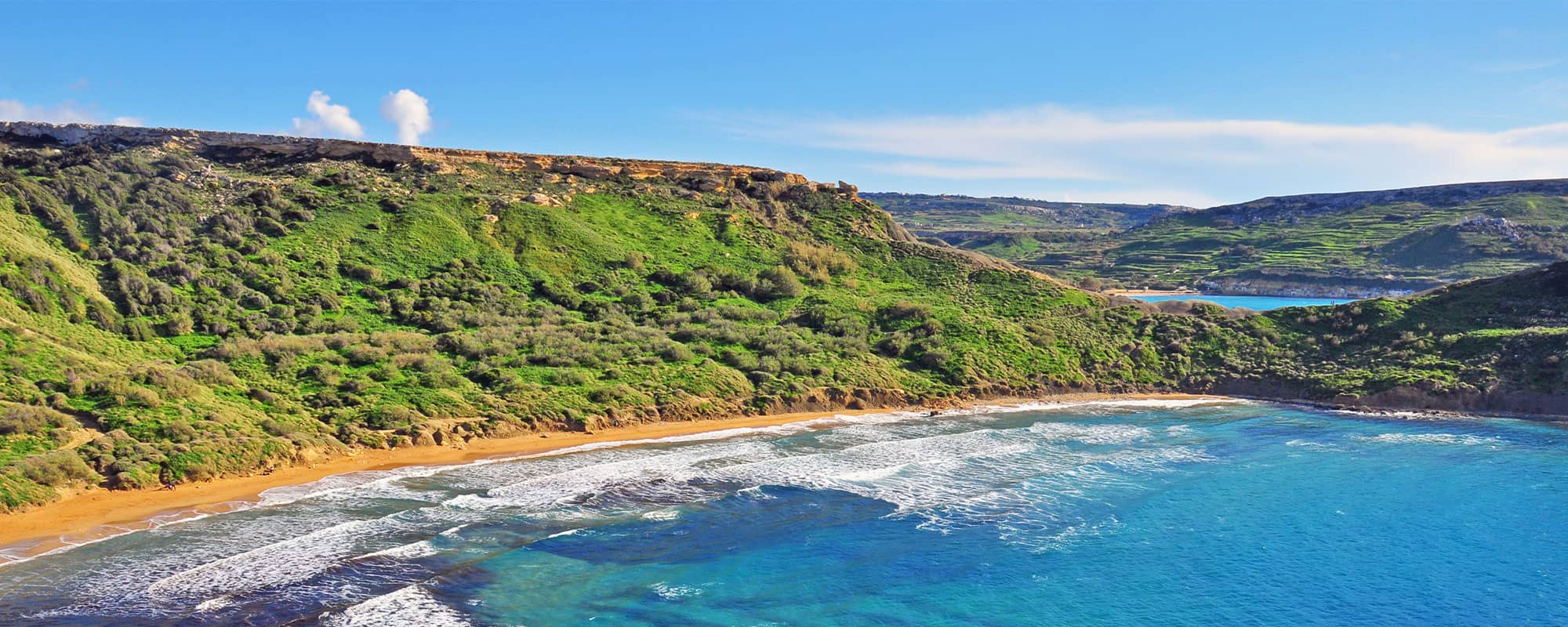The importance of digital literacy has been undisputed for some time now, but the recent pandemic brought this into centre stage on a global level. As more of us shifted to the digital world, inequalities and gaps in our overall knowledge and preparedness were made starkly evident. An Erasmus project is trying to tackle these issues head on and attempting to learn from our recent past…
Continue readingAn Assessment of the ERA’s 2050 Strategy
A Much-Needed Vision
The National Strategy for the Environment 2050, recently opened for public consultation, comes at a time when few would question the need to pay serious attention to the state of the environment in Malta. The challenges that Malta faces in this sector are far from trivial. While the country has certainly made tremendous strides in several respects, the statistics given with the Strategy itself paint a rather dire picture of the state of the environment in Malta and the implications of this for the well-being of its citizens.
For example, just 1.8% of Malta’s land cover comprises urban green areas, and 91.4% of citizens are concerned or highly concerned about urban issues. At the same time, 84% of the public are highly concerned about air quality in Malta (not surprising considering that a population of 516,000 sustains a vehicle fleet of >400,000 within the very limited land area of the country) and 76.3% are highly concerned about marine pollution.
That there is widespread underlying disquiet amongst many citizens about the state of the environment is indeed evident to any who choose to see this. The considerable pressures imposed by constraints of space and population are further exacerbated by the fact that the environmental sector has long tended to be the ‘Cinderella’ of policy priorities for successive governments, receiving little attention but deserving of far more.
In this context, the strategy is a most welcome initiative, offering a highly desirable vision of where we want to go. It is particularly positive to note that the Strategy strongly acknowledges issues that have thus far been largely ignored or marginalised – ranging from the pervasiveness of light and noise pollution to the need to consider issues of landscape quality, to the opportunities afforded by stronger synergies with industry. The Strategy also embraces new strategic directions, reflecting European-wide trends in research and policy, such as a recognition of the need to ensure stronger connections between citizens and nature, not only for related mental and physical health benefits but also because such connections are known to be fundamental for fostering pro-environmental behaviour.
In this regard, it is highly encouraging to see the Strategy emphasise the importance of providing accessible green spaces within urban living environments and incorporating nature in school environments through nature-based learning approaches. If effectively implemented, these initiatives would have immense benefits, not only for improved environmental quality, but also for health and well-being. It is also highly positive to see the Strategy adopt a broad approach to nature conservation and protection, acknowledging the opportunities potentially afforded by restoring degraded terrestrial and marine ecosystems. In a country where almost no space is untouched and where pockets of nature are interspersed within a dense matrix of human activity, it is clear that such a proactive approach is much needed.
Implementation Challenges
Where the Strategy falls short is perhaps in convincing stakeholders that its ambitious and noble goals can truly be achieved. While it is recognised that the intent of this document is to establish a strategic direction, the Strategy is rather sparse on details of how measures will actually be implemented and how their success will be measured.
Regrettably, given the track record of performance in the environmental sector nationally, this does not inspire confidence. For example, it is hard to take seriously the claim that existing gardens and green spaces will be protected (without any further explanation), when the exact opposite has been taking place, notwithstanding public outcry.
In some cases, the Strategy also does not seem to go far enough. For example, despite vague descriptions of measures to safeguard landscape quality, the Strategy makes no commitment for Malta to actually ratify the European Landscape Convention, which it signed 22 years ago. It is worth pointing out that Malta is the only one of the Convention’s 41 signatory states not to have ratified this Convention.
In other aspects, the Strategy perhaps expends unnecessary effort. For instance, it proposes funding the creation of an index of citizen well-being in relation to the sustainability of the environment. However, given that the link between well-being and environmental quality is well known and has been extensively researched for decades, this does not come across as the most efficient or effective use of limited available resources. Available data already clearly identifies several environmental concerns that are impinging on the well-being of Maltese citizens; there is certainly no pressing need for such an index to allow us to evaluate the impacts of development proposals on liveability and quality of life, as suggested in the Strategy. What is needed is simply a real will to address these issues.
Indeed, what is perhaps even more concerning is what the Strategy does not address. Despite the rhetoric that ‘a healthy environment is both our duty and our right’, it has been painfully evident that the health of the environment remains largely at the mercy of a land-use planning system that, while excellent at promoting the interests of a few, has been woefully inadequate at safeguarding the common good.
Several of the issues that the Strategy seeks to address can be linked back to the failures of this planning system – amongst which are excessive congestion in urban areas, the lack of green spaces, the largely fragmented state of local biodiversity, the creation of a road network that prioritises cars and disincentives alternative modes of travel, various pollution issues that reduce quality of life, and the loss of precious water resources through excessive hard landscaping, to name just a few. It is all well and good to lay out a utopian Strategy for the environment – but how convincing is this, when there is little to suggest that the environment will no longer remain subservient to the land-use planning system that has brought us to this point? As long as planning decisions remain under the influence of political appointees, with environmental interests represented by the lone minority votes of the Environment and Resources Authority (ERA) and environmental NGOs, there is little to inspire confidence.
I have no doubt that the Strategy is well-intentioned. I likewise have no doubt that the ERA is staffed by highly competent professionals who truly have the country’s best interests at heart and who are perfectly capable of implementing what is proposed in this Strategy – if they are allowed to.
There is also much that several Faculties and Institutes of the University of Malta can contribute, through both research and capacity-building initiatives. However, if the Strategy is to become a reality, the ERA can no longer be handicapped by institutional structures that render it a dog who can whine but not bite, damaging its credibility in the eyes of the public in the process.
As the Strategy’s foreword itself notes, there needs to be a real political commitment to its implementation, and this needs to be truly cross-sectoral, pan-governmental, and bipartisan. This requires far more than this Strategy itself can offer – namely a real willingness to sacrifice short-term political interests for long-term environmental and social gain.
Feedback submitted collectively by the Faculty of the Institute of Earth Systems on the Strategy is available here.
Further Reading
Debono, J. (2019). Two out of every three Maltese believe roads and big projects are a threat to the environment. Maltatoday. https://www.maltatoday.com.mt/environment/environment/95475/two_out_of_every_three_maltese_believe_roads_and_big_projects_are_a_threat_to_the_environment
Debono, J. (2022). In Europe, Maltese most likely to rate their rural landscapes negatively. Maltatoday. https://www.maltatoday.com.mt/environment/environment/117756/in_europe_maltese_most_likely_to_rate_their_rural_landscapes_negatively Environment & Resources Authority. (2022). National Strategy for the Environment 2050. Marsa: Environment and Resources Authority. https://era.org.mt/wp-content/uploads/2022/09/National-Strategy-for-the-Environment-2050-%E2%80%93-Public-Consultation-Draft.pdf
[All statistics and figures cited in this article are taken directly from the National Strategy for the Environment 2050, above]
Disclaimer: The views expressed in this article are solely those of the author, and do not necessarily reflect the views of the University of Malta or THINK Magazine
The National Environment Strategy as a Strategic Governance Document
The Environment and Resources Authority (ERA) has recently published a draft of the National Strategy for the Environment (the Strategy) for public consultation. With an increased awareness of the importance of well-being, and the contribution that a strong and resilient environment can make to our communities, this Strategy was eagerly anticipated. In fact, its precursor document, Wellbeing First, recognized the importance that a resilient environment has on the well-being of our communities. The fact is that nature’s elastic limit is being tested to its extreme, mainly due to anthropogenic effects. This necessitates immediate and urgent change now.
The Strategy has eight strategic thematic goals, each of which has a set of objectives. The thematic goals relate to:
- Clean air for well-being, healthy humans, and thriving nature (air quality)
- A quality environment for livable towns and villages, conducive to healthy living (the built environment)
- Biodiversity valued, conserved, restored, and sustainably used for the benefit of our nature, people and climate (biodiversity)
- Responsible and efficient resource use that reflects the value of raw and waste materials in support of zero waste to landfill (waste)
- Land resources managed to sustain natural functions and increase resilience to climate change (land)
- Ecologically diverse, healthy and productive marine waters, capable of supporting sustainable growth (the marine environment);
- Sustainable water resources that ensure long-term use and support water-dependent ecosystems (water)
- Enabling and empowering the required green transition.
Each strategic goal identifies the Sustainable Development Goals addressed, where we stand today in each of these sectors, the achievements to date, where we want to be, and how it is proposed to get there. The scientific aspect of this strategy is presented with an eloquence reflective of the considerable scientific capacity and ability that exists within the ERA. It is written in an engaging discourse with no real technical overload, making the Strategy an easy document to read and decipher.
It is clear that anthropogenic effects have had serious consequences on the state of Malta’s environment. Whether it is the quality of our air, the experience within our built environment, or the degradation of natural resources such as water, we have made a serious impact that can compromise our well-being, be it in economic, social, or environmental terms. The Strategy boldly recognizes where we stand and the deficit that we suffer in environmental terms. It also scientifically lays out the theoretical way forward in terms of the vision we should aspire for.
However, concrete commitments for immediate and future action are not sufficiently convincing in terms of tangible and meaningful steps that need to be taken. For example, there are still areas where studies are recommended to guide future action, even though international research has already demonstrated positive outcomes between nature and citizen quality of life. We also keep circling around the ‘polluter pays’ principle and pay-as-you-throw concepts despite such principles having already been implemented in developed economies. We are already aware that the progressive alteration of the natural balance through all types of development has led to environmental threats that are manifested in so many forms. Some of these threats are of a transboundary nature, such as climate change, whilst others have a more local dimension, such as the quality of the built environment, water resources, and waste management. We can no longer postpone the time to act effectively!
Good Environmental Governance
The Strategy recognizes the concept of environmental governance through a number of its goals. Environmental governance is mentioned in various forms, be it groundwater governance or land use governance. This is positive, as good governance is the catalyst for positive and determined action and the genesis of all tangible change. It is therefore worthwhile to look at the various parameters which constitute robust environmental governance and relate these to the direction pursued by the Strategy.
Clearly, political will is a major determinant of action. Political direction can either contribute to determined action or lengthen the timelines for proper and holistic responses. The Strategy is a policy document, and policy is the domain and responsibility of the government of the day. It should signify the way in which the government will fulfil its obligation and duty to protect the environment for the benefit of current and future generations and provide a measure by which the government’s environmental performance will be judged. Yet, the Strategy is ‘owned’ by the ERA, the environment regulator, an ownership mandated by the Environment Protection Act. We have, perhaps, not realised the sensitivity and accountability implications of policymaking and its locus within the decision-making process, making it distinct from regulatory and operational functions. Often enough, political will is interpreted to mean the will of the incumbent government. This notion is false, for all political actors have the responsibility to foster a better environment for society. Polarisation leads to inaction, and political parties should be mature enough to agree at least on a baseline scenario that will, in turn, shelter them from lobbyist pressures.
Coherency is perhaps the foremost challenge that the Strategy faces. It is clear from the actors’ collective responsibility to deliver each identified objective that coherency is a key success factor. Today’s perceptions are that we are an overdeveloped country which has surpassed its carrying capacity in certain sectors. This may even lead to a socio-ecological degradation in intra-generational equity. The Strategy correctly pinpoints a number of pain points which have to be addressed, such as the need for the built environment to be retrofitted with green infrastructure, the move towards a zero-waste society, and a responsibility to safeguard our water resources.
Yet on the ground, we still need to see concrete actions which are coherent with the achievement of such goals. For example, how will the existing planning framework support the rebalancing of natural cycles disrupted by development? Can we effectively hope for a more resilient environment and strengthened ecosystem services without reflecting the cost of environmental degradation in the price of goods and services? Are we ready to create a level playing field for environmentally friendly alternatives to current practices? It is clear that there is little, if any, intention to factor in the polluter pays principle. Although the principle is mentioned, it is shrouded in feasibility studies that are yet to be conducted. Instead, we get the feeling that good environmental behaviour will be supported through incentives whilst ‘business as usual scenarios’ will not bear the internalisation of costs related to environmental degradation.
Whilst in each objective the actors who will be responsible for its achievement are identified, the assignment of responsibility is at times unclear as it is not explicitly specified which entity or body will be responsible for achieving what. Perhaps one of the shortcomings of the Strategy is that there are no SMART objectives which can hold implementation to account in terms of measuring what has been achieved, by whom and by when, and whether such achievement is in line with what was forecasted or what the country is obliged to achieve.
Rule of law is critical for a thriving environmental sector. The environmental EU acquis is indeed extensive and has been transposed into Maltese law. The challenge of the rule of law is the actual enforcement of such legislation. Weak enforcement, for whatever reason, not only leads to abuse but also to a distorted playing field where those who are compliant remain disadvantaged. For example, one of the targets for waste is that 65% of municipal waste needs to be recycled by 2035. This leaves us 13 years to make a huge leap from current waste management outcomes where landfilling constituted 80% of waste management between 2007 and 2015. Yet, Malta remains a country where there is no direct charge for domestic waste according to the type of waste generated, nor is there a legal obligation to separate waste.
Malta’s weakest efforts have always been in the enforcement function. Clearly it is a difficult and at times dangerous function. Notwithstanding, regulators are set up in order to, amongst other things, ensure compliance. The Strategy hints at possibly looking at a consolidated enforcement function. This may make sense from a capacity perspective, but it comes with its own challenge of managing an enforcement team covering so many disciplines. In the meantime, the rightsizing of regulators with a view to migrate any overcapacity to the enforcement function needs to be undertaken with haste, and if necessary, the required recruitment must be effected to address any remaining gaps.
The Strategy is reported to have been developed in a participative manner with several stakeholders forming a panel which represented different sectors including policymaking, academia, the business community, and the voluntary sector. This is positive as governance is a means by which interests are articulated, differences mitigated, and subsequent action defined. It generates a sense of ownership, responsiveness, and empowerment for stakeholders. Yet, there are certain noticeable gaps such as the extent to which developers, waste management operators, and academia were fully represented. One might argue that there are an infinite number of stakeholders; representation at this stage has to be limited in order to be manageable and other stakeholders will have the opportunity to respond to this consultation document. Yet it is also known that the perception of a consultation document is that the die has been cast and that significant changes are unlikely unless there is a major uproar.
Communication remains key to raising awareness of the environmental risks and challenges that the country faces. A number of information and awareness campaigns have been undertaken, but the retention of the relayed messages seems poor if our performance in the waste sector is to serve as an indicator of success. Whilst information and awareness raising is important, it should complement other environmental actions and not be thought of as a ‘be-all’ to instigate the required change.
The Strategy clearly points towards a number of feasibility studies which are primarily aimed at changing the status quo on a number of delicate issues. Whilst this is the correct way to proceed in order to assess the impact and put forward proposals which are integrative, equitable, and ethical, it is important that such studies do not further postpone the action required.
The Chairman’s foreword to the Strategy recognises that ‘national environmental challenges need to be addressed in the interest of achieving an overall sustainable quality of life’. Sustainable development is about maximising economic, social, and environmental goals and encompasses all forms of development. Thus in the same way that environmental challenges need to lead to a sustainable quality of life, it also needs to be kept in mind when addressing the social and economic agendas which also have to contribute towards an environment which befits society and enhances well-being. Unfortunately, the consequences of inaction will be felt more by vulnerable groups, leading to a greater socio-economic disparity. If we cannot agree to this and shoulder our responsibilities, then the potential of the Strategy towards environmental advocacy will not be realised in time.
Disclaimer: The views expressed in this article are solely those of the author, and do not necessarily reflect the views of the University of Malta or THINK Magazine
Only the Lonely
eports suggesting loneliness is on the rise, are we facing a new epidemic? And are there specific social, demographic, or economic factors that are contributing to this rise? In this article, Chris Styles speaks to Jamie Bonnici from the University of Malta, Faculty for Social Wellbeing, about a 2019 study on the prevalence of loneliness among the Maltese population and if these feelings of isolation are more prevalent in certain demographics, a study which has been replicated recently as well.
Continue readingEating Disorders in Malta
Eating disorders such as anorexia and bulimia are usually associated with teenage women. However, eating disorders can affect anyone, irrespective of gender or age. A local study examines eating disorders in those aged between 10 and 16 years.
Continue readingRefugee Students
Learning Diversity: A Case Study of Refugee Students in Primary School is an international project created to provide information about the unique needs of refugee students, their obstacles to success, and the interventions and good practices applied to help them. Jonathan Firbank speaks with lead coordinator, Prof. Simone Galea, about the study’s ethics, methods, and findings.
Continue readingHow to do a Public Consultation
The Environment and Resources Authority (ERA) has published a Public Consultation on the National Strategy for the Environment 2050 (NSE 2050). Public consultations allow people to express their views to lawmakers in the course of setting policy orientations and drafting legislation. Essentially the public provides feedback on the propositions presented. It is a fantastic tool for democracy if used properly.
Continue readingCovid and the Elderly
Elderly people in residential care homes have been particularly affected by the pandemic and the safety measures associated with it. Isolation, loneliness, and the lack of physical touch are a few factors that have impacted their mental well-being.
Continue readingEco-Anxiety
Have you ever felt stressed about your future when hearing about environmental issues and climate change in the news? Have you ever felt particularly anxious about the future of humanity and our planet? Well I can assure you, you are not alone.
There is a formal term for this phenomenon: eco-anxiety. The American Psychology Association describes eco-anxiety as ’the chronic fear of environmental cataclysm that comes from observing the seemingly irrevocable impact of climate change and the associated concern for one’s future and that of next generations.’ While this is not yet considered as a psychological illness, it can have numerous mental consequences in some people.

Eco-anxiety does not affect everyone in the same manner. Various studies in the last few years have shown that eco-anxiety tends to impact younger generations the most, mainly children and youths. Surveys show that many young people rank climate change as the most significant societal problem. In one recent study published in The Lancet Planetary Health and conducted in 10 different countries among 16 to 25-year-olds, 59% of respondents stated that they are very or extremely worried, while 84% of participants said that they felt at least moderately worried.
Moreover, the majority of respondents ‘felt sad, anxious, angry, powerless, helpless, and guilty,’ about climate change. Eco-anxiety also tends to be more prevalent among people who are aware of the environment and knowledgeable on climate change. This group feels largely responsible for solving this problem that has been dumped onto its shoulders by governmental inaction and earlier generations.
This might also explain why it is quite common for young students studying in the environmental field to feel the symptoms of eco-anxiety. As a student currently following a sustainability-related course, I am aware that it can get quite overwhelming. In fact, as part of a recent Sustainability Week on university campus, a workshop was organised to help students cope with the symptoms of eco-anxiety. While coping mechanisms vary from one individual to another, these are some things you can try out if you find yourself in a similar situation:
- Explore a healthy outlet to give your thoughts a break through physical exercise, meditation, and deep breathing.
- Share your feelings with friends or note them down in a journal.
- Take tangible action by making small but necessary lifestyle changes.
- Make your voice heard through lobbying, petitions, and marching in the streets, or by joining sustainable organisations.
Claiming the Right to a Relationship
Everyone should have the right to explore intimate relationships, break up and make up, and find a place where they are comfortable in their sexuality. So why is it that people with disabilities are so often denied these experiences? Becky Catrin Jones speaks to Dr Claire Azzopardi Lane about her pioneering work
Continue reading









